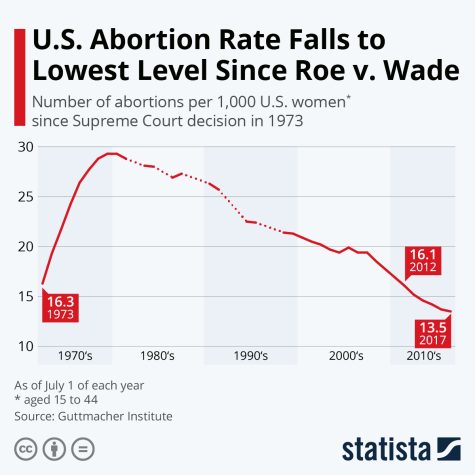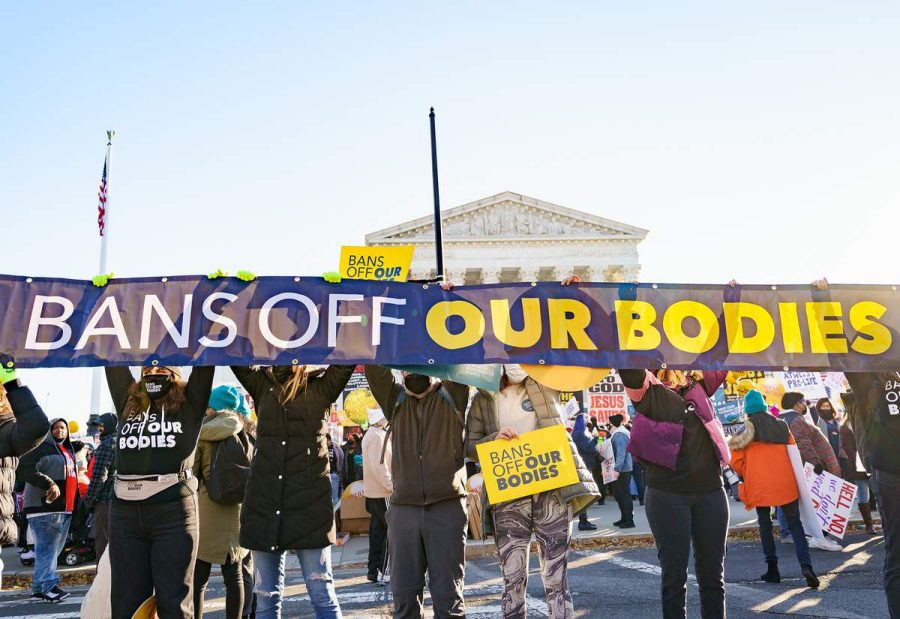Roe vs Wade Debated Again- Idaho Bans Abortions After Six Weeks of Pregnancy
The Supreme Court’s decision in the 1972 case of Roe v. Wade is one of the most controversial legal decisions in the modern history of the United States. Roe made it possible for women in all states to legally terminate a pregnancy, with certain gestational time limits.
On January 22, 1973, the U.S. Supreme Court announced its decision in Roe v. Wade, a challenge to a Texas law that made it a crime to perform an abortion unless a woman’s life was at stake. The case had been filed by “Jane Roe,” an unmarried woman who wanted to safely and legally end her pregnancy. At the time, this was almost unheard of in society and for a woman to bring this right to court was a huge deal. The justices acknowledged that being forced to continue a pregnancy puts a lot at risk for women, such as: physical health, mental health, financial barriers, and social stigma
The Court was skeptical of the state’s argument that Constitutional protections begin at conception. The Constitution doesn’t provide a definition of a “person.” But, it does say that its protections cover those who are “born or naturalized” in the United States. After examining other cases relating to unborn children, the Court concluded that “the unborn have never been recognized in the law as persons in the whole sense.”
The court sided with Roe and struck down the Texas law. In its ruling, the court recognized for the first time that the constitutional right to privacy “is broad enough to encompass a woman’s decision whether or not to terminate her pregnancy” (Roe v. Wade legal document).
By the late 1960s, a nationwide effort was underway to reform the abortion laws in nearly every state. Women’s rights advocates, health care providers, and the legal community challenged state legislatures and went to court to overturn laws that had been in place since the mid-1800s. Between 1967 and 1973, four states — Alaska, Hawaii, New York, and Washington — repealed their abortion bans, while 13 others enacted limited reforms
Below is a summary of the most common abortion requirements, restrictions, and barriers in the U.S. states.
-
Counseling requirements
-
24 states require that patients be presented with a description of all abortion procedures. Those seeking a first-term abortion will be provided information on late-term abortion, a much different procedure.
-
8 states require that patients be told about the purported mental health effects of abortion
-
13 states require that the patient be told about fetal pain. Medical views vary on this point, particularly before 24 weeks of gestation.
-
5 states require that the patient be told personhood begins at conception.
-
Ultrasound requirement- 27 states have some ultrasound requirements. 16 states mandate that a medical provider conduct an ultrasound prior to an abortion. 6 states require the medical provider to show and describe the image. Eight states require that they ask the patient if they would like to see the image. An ultrasound is not a medically necessary procedure in a first-trimester abortion.
-
Waiting periods- 25 states require a waiting period between counseling and an abortion procedure.
-
Gestational abortion limits
-
Parental consent requirements
-
Partial-birth abortion ban
-
Public funding restrictions
-
Private insurance coverage restrictions
-
Refusal of care rule
Roe vs Wade did not increase the amount of abortions per year by very much but the safety risk went down a significant amount. Because women were not being operated on illegally, resources and regulations were much more ethical and professional. In more recent years though, abortion has divided society even more. The idea of pro-choice and pro-life has us split in half. States are now challenging Roe vs. Wade and fighting for a pro-life community.
In more recent years though, abortion has divided society even more. The idea of pro-choice and pro-life has us split in half. States are now challenging Roe vs. Wade and fighting for a pro-life community.
On March 14, the Idaho House approved a Republican bill that would ban abortions after six weeks of pregnancy, becoming the first state to copy parts of the restrictive Texas law that has banned most abortions in the state. The Washington Post reports different opinions as known conservative states take action on their “pro-life” views. ““Abortion is not a constitutional right,” Ehardt said. “The Supreme Court in 1973 did something that was never allowed in the first place.” and ““This bill is not clever, it’s absurd,”- said state Rep. Lauren Necochea. “Its impacts are cruel and it is blatantly unconstitutional.”” The article also addresses the differences between this new idaho bill and the Texas ban. The Idaho law has an exception for rape, but only if the victim files a police report. This exception is inconsiderate, given that few victims of sexual assault report the crime to the police, because filing a report could result in further abuse, especially for victims of intimate partner violence. If a rape victim terminates her pregnancy without filing a police report, the rapist’s family members can all sue separately. The bill’s sponsor, Republican state Rep. Steven Harris, has confirmed that if a rapist has 10 siblings, each can sue for $20,000. effectively allows the father, siblings, grandparents, aunts, and uncles of a “preborn child” to veto an abortion. The law applies not just to minors, but to any adult seeking the procedure. This makes it incredibly easy for a sexual assailant’s family to further victimize the woman by profiting from her pregnancy.
Really no words for this cruel Texas-style bill heading to Gov. Brad Little’s desk: Idaho Senate Bill 1309 would ban abortion after six weeks, and it allows family members of rapists to sue medical providers.
Here’s some of the discussion before it passed the House: pic.twitter.com/5F1yRD7wIn
— The Recount (@therecount) March 15, 2022
Similarly, Missouri Republicans have introduced bills that would prohibit residents from traveling out of state to terminate a pregnancy and are forcing women to carry ectopic pregnancies that could kill them. Alabama is vigorously defending a law that allows district attorneys to cross-examine minors seeking an abortion without parental consent—and allows judges to appoint a guardian to represent the fetus in court.
While Roe Vs Wade set the Foundation for Choice, we are still fighting for it.

Avery Hoch is a Senior and writing for her third year on The Gator's Eye.















